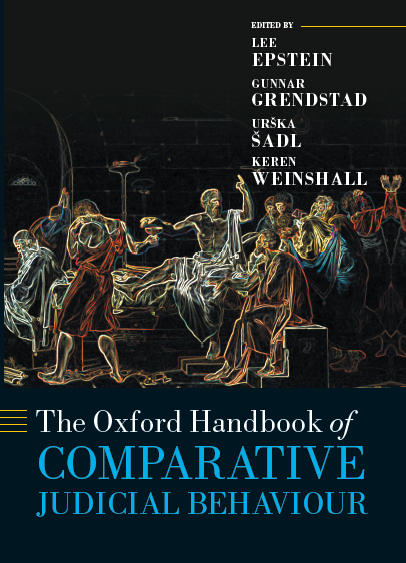Global Scholars Unite in Pioneering Judicial Behavior Handbook
Scholars from the Department of Comparative Politics contributed to the recently published Oxford Handbook of Comparative Judicial Behaviour.
Main content
These are fascinating times for the comparative analysis of judicial behavior. What was once the exclusive domain of U.S. political scientists is now being enriched by a new generation of scholars. They are increasingly drawing on history, economics, law, and psychology to shed light on how and why judges make their decisions and the impact of those decisions on society.
As a pioneering work, the Oxford Handbook of Comparative Judicial Behaviour, published late last year, seeks to set the agenda for research and teaching about comparative judicial behavior in the years to come. To that end, the Handbook brings together 59 leading scholars in the field, who engage with its critical aspects across 42 chapters.
Gunnar Grendstad, a professor at the Department of Comparative Politics, is one of four co-editors of the volume, along with Lee Epstein, Keren Weinshall, and Urška Šadl. Henrik L. Bentsen and Jon Kåre Skiple, both holding PhDs from the Department of Comparative Politics and now with NORCE, Bergen, wrote the chapter on “Leadership in Courts.” Elin Skaar, who has a Master’s degree from the Department of Comparative Politics and a PhD from UCLA, now at CMI, wrote the chapter on “Courts and Transitional Justice.”
For some years, Professor Lee Epstein was also affiliated with the University of Bergen, at both the Law School and the Department.
It was a true pleasure to work with such prominent co-editors and scholars from around the world, says Gunnar Grendstad. Their contributions have been invaluable. It reflects well on the Department to have several local scholars among the Handbook’s contributors.
The Handbook's 42 chapters are organized into 10 thematic sections. Each chapter explores a significant topic, offering a critical evaluation of current research and highlighting opportunities for future analyses. While all 42 chapters focus on understanding the causes and effects of judicial decisions, they employ a broad, inclusive, and distinctly interdisciplinary approach. This reflects the rich diversity in global scholarship on judicial behavior.
Epstein, Lee, Gunnar Grendstad, Urška Šadl, and Keren Weinshall, eds. 2024. The Oxford Handbook of Comparative Judicial Behaviour. Oxford, United Kingdom: Oxford University Press. https://doi.org/10.1093/oxfordhb/9780192898579.001.0001


